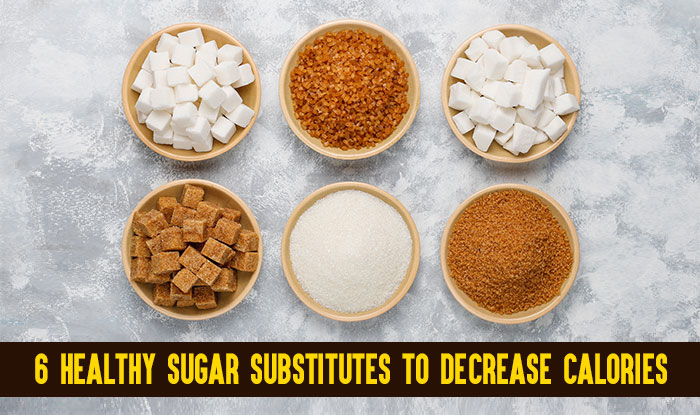6 Healthy Alternatives to Sugar to Reduce down Calories
Fortunately, a wide range of natural sugar substitutes is available to facilitate reducing the amount of table sugar present in your diet. A diet high in sugar has been linked to many health conditions, either directly through its negative effects on the body or indirectly due to difficulties with obesity, type 2 diabetes, and cardiovascular diseases.
The healthy alternatives described below sugar will help you make healthy decisions even if you are craving.
Raw Honey
This fruit nectar with nutritional and healing properties has high levels of fructose (53 percent) but also contains vitamins, minerals, antioxidants, trace enzymes, and amino acids. Along with weight loss benefits, honey also supports the growth of good gut bacteria. To get the most dietary benefits, mix honey in marinades and Slavs, drizzle on pancakes and fruit salads and use it in a variety of raw desserts. As far as its nutritional part is concerned, 100 grams of honey contains 304 calories, and 75 grams (19 teaspoons) is equal to 100 grams (26 teaspoons) of white/brown sugar. You can consider using raw cups of honey for every cup of white / brown sugar for a nutritious punch.
Maple Syrup
Collected from the bark of maple trees, pure maple syrup is two-thirds sucrose and one-third fructose. It is packed in exceptional levels of zinc, natural polyphenols, and manganese. Due to the glycemic index (GI) at 54 m, its consumption lowers blood sugar. Approximately 100 grams of pure maple syrup contain 260 calories while the same amount of maple sugar crystals have 354 calories. Dark maple syrup is perfect for use in baked and other desserts, while lighter ones are better for direct use such as fruit salads, teas, and breakfast cereals, on pancakes or waffles.
Sugar Date
These are made up of dehydrated and ground dates. Being rich in vitamins, fiber, folate, iron, calcium, and potassium, dates contain more antioxidants than most other sweeteners. Due to high fructose content, these sugars are preferable to brown sugar (as compared to white), due to their viscous texture. As far as the nutritional quotient is concerned, about 100 grams of dates have 271 calories, so each cup of white / brown sugar should be converted into sugar syrup of about two-thirds of a cup of sugar. Being relatively low on the GI scale dates lower your blood sugar compared to refined sugars.
Coconut Palm Sugar
This natural sugar is made from coconut palm trees and has two-thirds sucrose with 40–50 percent fructose and 5–10% glucose content. It contains minerals such as zinc, calcium and potassium, vitamin C, chloride, sulfur, polyphenols, and antioxidants, and also undergoes minimal processing. It is important to note that coconut sugars contain a fiber called insulin, which reduces the absorption of glucose. Approximately 100 grams of coconut sugar has 354 calories, making it the chosen ingredient to be used in traditional Asian desserts, sauces, and curries.
Molasses Or Treacle
Thick and gooey jaggery is a by-product of the sugar-making process. Molasses contains nutrients such as calcium, iron, zinc, magnesium, copper, and potassium. 100 grams of blackstrap jaggery contains 290 calories, and 133 grams (37eas teaspoons) is equal to 100 grams (25 teaspoons) of white/brown sugar. To promote more nutrition, one should opt for blackstrap molasses regularly.
Raw sugar cane sugar
Sugarcane sugar undergoes minimal processing, and this concentrated product retains important minerals, mainly iron and vitamins. Depending on the sugarcane variety, this sugar substitute can range from dark brown to golden brown and vary in its sweetness level.
Choosing a healthy alternative to sugar comes in a personal choice, which is why it is up to you to find the preferred sugar substitute that works best for your body.

Your point of view caught my eye and was very interesting. Thanks. I have a question for you. https://www.binance.com/bg/register?ref=FIHEGIZ8